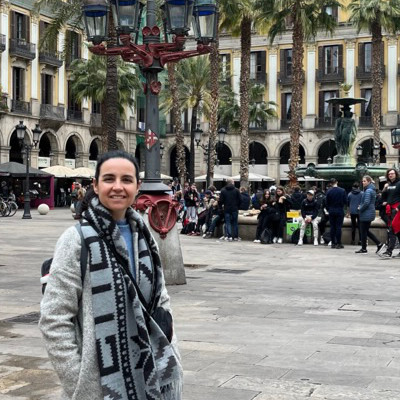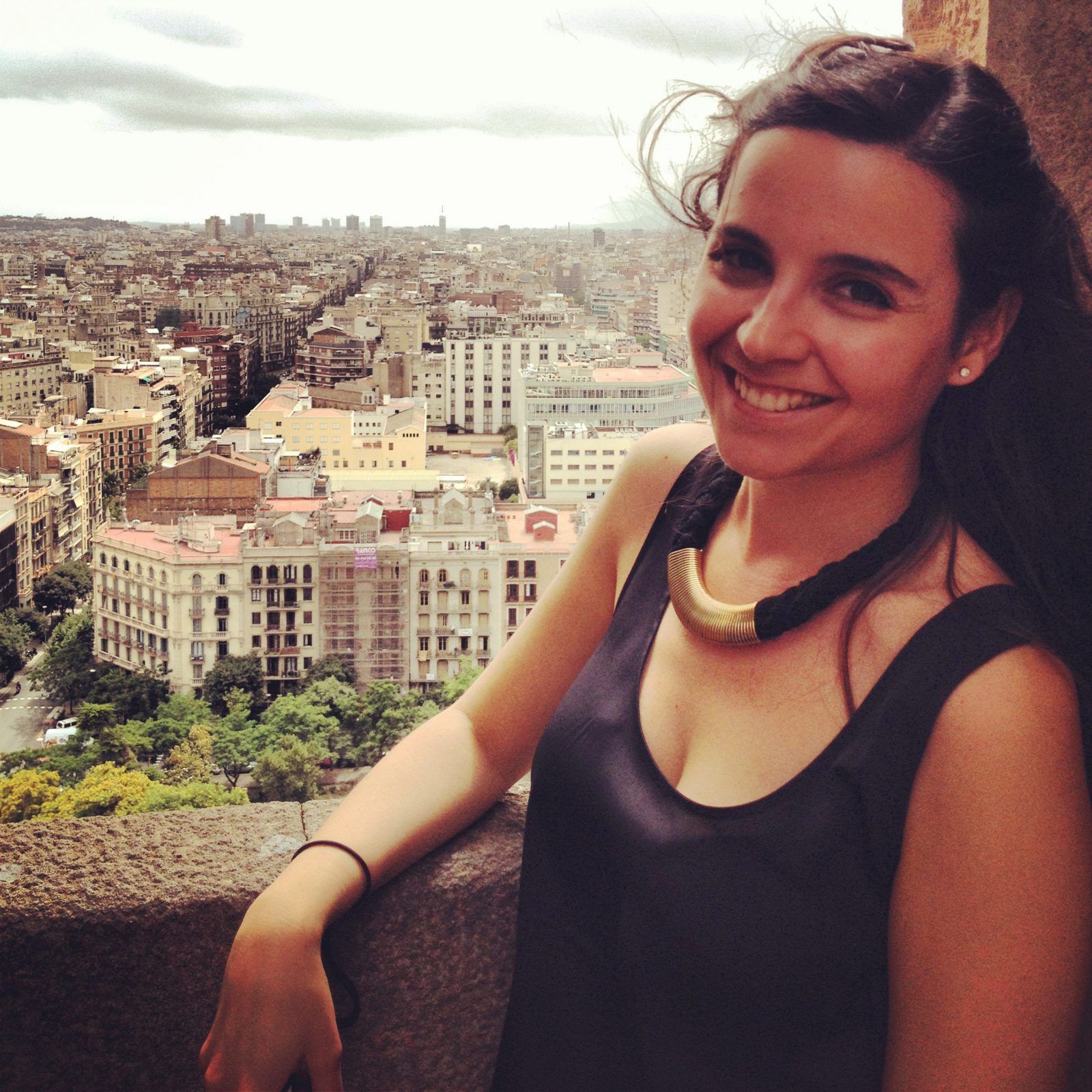1992 was a big year for Barcelona. The Olympic Games were a reality! A total of 9,959 Olympic and 3,020 Paralympic athletes came to the games. It had been a long and costly process, starting on October 17, 1986 (the date of Barcelona’s final bid to host the Olympic Games) and ending on the day of the emotional opening ceremony on July 25, 1992.
The new sports facilities and Olympic villages changed the city’s physiognomy. But the games were also the perfect excuse to invest significantly in the city, such as in the new Rondes, the Illa Diagonal shopping center, the MACBA contemporary art museum, or Plaça de les Glòries.
Under the banner of the campaign “Barcelona, posa’t guapa” (Barcelona, beautify yourself), residents were encouraged to make the city more beautiful, for example, by renovating old houses or painting facades. The renewal of the Port Vell harbor area with the new Maremagnum shopping center was the icing on the cake. A new international and avant-garde Barcelona was born.

I was six when the Olympic Games took place in Barcelona, but I vividly remember the excitement and fever around the Olympic Games, the opening ceremony with Montserrat Caballé and Freddie Mercury singing ‘Barcelooonaaaa!’, how the marathon passed our house and we cheered on the participants, and how we went to see the Olympic flame still burning at the Olympic Stadium in Barcelona after the games.
Key Points of the Barcelona Olympic Games
The 1992 Olympic Games brought a wave of inspiration and positivity through the sunny streets of Barcelona. Let’s look back at the unforgettable moments, remarkable achievements, and lasting legacy of the 1992 Summer Olympics.
- Location and Dates: In the streets of Barcelona, between July 25 and August 9, 1992, an Olympic spectacle unfolded that captivated the world.
- Symbols: The iconic sun logo and quirky mascot Cobi were symbols that characterized the Barcelona ’92 Games.
- Political Significance: A time of political change, where former Soviet states presented themselves individually, and South Africa returned to the Olympic arena after the end of apartheid.
- Participants: Nearly 10,000 athletes from 169 countries participated, and historical moments were captured as Germany united and South Africa returned.
- Sporting Achievements: A look at the breathtaking basketball matches of the ‘Dream Team’, the sprint triumphs of Linford Christie and Carl Lewis, and the return of Nadia Comăneci in the gymnastics arena.
- Ceremonies and Entertainment: From a spectacular opening ceremony full of music and dance, with the memorable “Barcelona” song by Freddie Mercury and Montserrat Caballé, to the enchanting closing with the voice of José Carreras; Barcelona ’92 was not just sports, but also art.
- Legacy: The legacy of Barcelona ’92 extends beyond medals and records, with praise for the event as a turning point in organizing the Olympic Games and transforming Barcelona into a global metropolis.
Barcelona of the Olympic Games
In just 6 years, the largest urban transformation since the expansion of the Eixample in the late 19th century took place in Barcelona. The city seized the opportunity for major renewal, not only with new sports complexes but also by building new roads, harbor areas, and even entire new parks and neighborhoods. To see some traces of the Olympic Games, visit one of the following places.
1. Anella Olímpica
The area around Plaça d’Europa on Montjuïc, also known as the Anella Olímpica, was the epicenter of the 1992 Olympic Games. Sports complexes such as the Estadi Olímpic (Olympic Stadium), Palau Sant Jordi, Piscines Picornell, and Piscina de Montjuïc are located here. The iconic telecommunication tower Torre Calatrava is still a beautiful symbol of the games.
Tip: If you walk around the Olympic Stadium, try to find the spot where the Olympic flame was burning (hint: look up)!

2. Vila Olímpica and Port Olímpic
One of the major urban changes leading up to the Olympic Games was the renovation of the entire maritime front from La Barceloneta to Poblenou. Amidst the two, the Vila Olímpica (Olympic Village) emerged, and a new, modern harbor, Port Olímpic (Olympic Harbor), was built.

3. Cobi Sculpture
Cobi, the mascot of the Barcelona Games designed by Javier Mariscal, initially received a lukewarm reception. However, as the Games approached, this cubist-style dog gained popularity. Just before the Olympics, a sculpture of Cobi was placed in Parc del Port Olímpic, which can still be visited today.
4. Port Vell and Maremagnum
For the Olympic Games, the last section of the Ramblas, Rambla del Mar, was added, complete with its wobbly wooden bridge. The bridge connects to the new Maremagnum shopping center, uniquely located next to the sea. Port Vell (‘old port‘) was renovated into the beautiful harbor area seen today.

5. The Beach
One of the most significant changes for Barcelona’s residents was the ‘opening’ of the city to the beach. Once the old railway along the beach was buried underground and the factories, shantytowns, and merenderos (simple beach bars) by the sea were removed, people could once again enjoy Barcelona’s beaches.
6. Vall d’Hebron
Vall d’Hebron was one of the neighborhoods where the arrival of the Olympic Games was deeply felt. The area was restructured, and new sports complexes like archery and tennis fields, as well as the Pavelló de la Vall d’Hebron, were built. An Olympic village was also constructed to house the press during the games, known as Vila Olímpica dels Periodistes, the black-and-white building near Avinguda de Can Marcet.

7. Les Rondes
The Barcelona Olympic Games also led to the construction of the Ronda Litoral and Ronda de Dalt, as well as the Nus de la Trinitat and Llobregat roundabouts. These were a great addition to the existing Ronda del Mig, which cut through the city. This significantly improved traffic in the city.
8. Plaça de les Glòries Catalanes
Perhaps one of the least successful changes during the Olympic Games was the Plaça de les Glòries, which has become a dizzying traffic junction and a headache for the city council, who, after numerous renovations, still haven’t figured out what to do with it.
9. Museu Olímpic
A visit to the Barcelona of the Olympic Games wouldn’t be complete without a visit to the Olympic Museum. Dedicated to the Olympic Games in general, and particularly to those in Barcelona, it’s the place to visit if you want to learn more about this fantastic sporting event.

10. Locations of the Games
During the Barcelona Olympic Games, events took place at four locations. The main one was on Montjuïc hill (Estadi Olímpic, Palau Sant Jordi, INEFC, Piscines Bernat Picornell, Piscina de Montjuïc, Palau de la Metal·lúrgia, Palau d’Esports de Barcelona, Pavelló de l’Espanya Industrial, Circuit de Cross, and Estadi Pau Negre).
At Avinguda Diagonal, there was the FC Barcelona stadium, Palau Blaugrana, Reial Club de Polo, and the now-demolished Estadi del RCD Espanyol.
In Vall d’Hebron, there were El Velòdrom, Camp de Tir amb Arc, Pavelló de la Vall d’Hebron, and Tennis de la Vall d’Hebron.
Finally, the Parc del Mar area housed the Port Olímpic, Pavelló de la Mar Bella, Poliesportiu Estació del Nord, and Frontó Colom.

Map of Olympic Games in Barcelona
To explore the most emblematic places of the Barcelona of the Olympic Games on your own, visit one of the locations listed below. The map will help guide you.
Now I’m curious: where were you during the 1992 Olympic Games, and do you know Barcelona from before that time?





